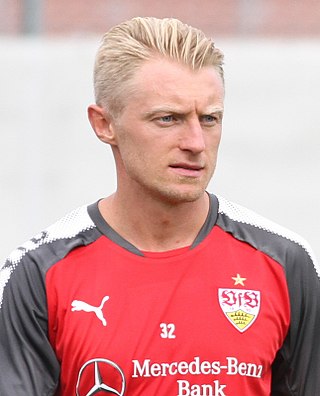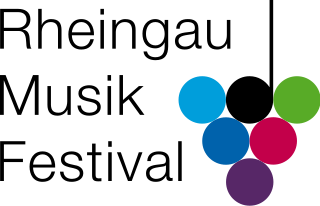The Canadian University Society for Intercollegiate Debate is the national organization which governs all English language competitive university debating and public speaking in Canada. It sanctions several official annual tournaments and represents Canadian debating domestically and abroad. Its membership consists of student debating unions, sanctioned by their respective universities, from across Canada. CUSID has been described as "a student-run, parliamentary debate league with close ties to the American Parliamentary Debate Association".

Debate is a process that involves formal discourse, discussion, and oral addresses on a particular topic or collection of topics, often with a moderator and an audience. In a debate, arguments are put forward for common opposing viewpoints. Debates have historically occurred in public meetings, academic institutions, debate halls, coffeehouses, competitions, and legislative assemblies. Debates have also been conducted for educational and recreational purposes, usually associated with educational establishments and debating societies. These debates emphasized logical consistency, factual accuracy, and emotional appeal to an audience. Modern forms of competitive debate also include rules for participants to discuss and decide upon the framework of the debates.

English as a second or foreign language is the use of English by speakers with different native languages, often with students whose native language is not English and are learning to speak and write English, commonly among students Language education for people learning English may be known as English as a foreign language (EFL), English as a second language (ESL), English for speakers of other languages (ESOL), English as an additional language (EAL), or English as a New Language (ENL), which refers to the practice of studying English in a country where it is not the dominant language. These programs, especially ESL, are usually an academic subject, course, or program designed to teach English to students who are not yet proficient in the language. While some people only refer to learning in an English-speaking country, learning this language can also entail learning in a non-English speaking or non-native nation.

The World Universities Debating Championship (WUDC) is the world's largest international debating tournament and one of the largest annual international student events. WUDC is held in the British Parliamentary format.
The World Schools Debating Championships (WSDC) is an annual English-language debating tournament for high school-level teams representing different nations.
Parliamentary debate is an academic debate event. Many university-level institutions in English-speaking nations sponsor parliamentary debate teams. In addition the format is currently spreading to the high school level. Despite the name, the parli is not related to debate in governmental parliaments beyond formal speaker titles such as "Opposition Leader" and "Prime Minister".

Andreas Hinkel is a German football coach and a former player. Hinkel played as a right-back and earned 21 caps for the Germany national team. He was known for his attacking play on the flanks and defensive solidity.

Andreas Beck is a former professional footballer who played as a right-back. Born in the Soviet Union, he represented Germany at youth and senior levels.
Leitkultur is a German concept, which can be translated as 'guiding culture' or 'leading culture', less literally as 'common culture', 'core culture' or 'basic culture'. The term was first introduced in 1998 by the German-Arab sociologist Bassam Tibi and from 2000 onward the term figured prominently in the national political debate in Germany about national identity and immigration.
The Australasian Intervarsity Debating Championships (known colloquially as "Australs") is an annual debating tournament for teams from universities in the Australasian region. It is one of the world's largest debating tournaments, second only in size to the World Universities Debating Championship (WUDC), the European Universities Debating Championships (EUDC) and one of the largest annual student events in the world. Australs follows the Australia-Asian Debating format (three speakers plus replies), rather than the British Parliamentary Style used at WUDC. It is held every year in early-July under the auspices of the Australasian Intervarsity Debating Association (AIDA). The host university is selected a year before at a meeting of the Council of the Australasian Intervarsity Debating Association.
The Peruvian Debate Association is a legally ordained, non-profit institution, which organizes and coordinates activities to promote and increase debate in and among schools and universities in Peru. This association was founded in September 2002, by Sixto Ramos, Philosophy, Economics and Peruvian History teacher at Colegio Franklin Delano Roosevelt and representatives from 6 other schools; Santa María Marianistas, San Ignacio de Recalde, Markham College, Casuarinas, Newton and Carmelitas. In 2003 the Peruvian Debate Association along with other non-member schools and colleges helped Colegio Franklin Delano Roosevelt organize the World Schools Debating Championship 2003 in Lima, Peru; the grand final was held at a packed auditorium at Universidad de Lima with well over 1000 people attending.

Stuttgart 21 is a railway and urban development project in Stuttgart, Germany. It is a part of the Stuttgart–Augsburg new and upgraded railway and the Main Line for Europe (Paris—Vienna) within the framework of the Trans-European Networks. Its core is a renewed Stuttgart Hauptbahnhof, among some 57 kilometres of new railways, including some 30 kilometres of tunnels and 25 kilometres of high-speed lines.

The Kissinger Sommer is a classical music festival held every year in the summer in the city of Bad Kissingen in Bavaria, Southern Germany.

Stefan Mappus is a German politician from the Christian Democratic Union (CDU). He was the 8th Minister President of the state of Baden-Württemberg from 2010 to 2011 and chairman of the CDU Baden-Württemberg from 2009 to 2011.

The Rheingau Musik Festival (RMF) is an international summer music festival in Germany, founded in 1987. It is mostly for classical music, but includes other genres. Concerts take place at culturally important locations, such as Eberbach Abbey and Schloss Johannisberg, in the wine-growing Rheingau region between Wiesbaden and Lorch.

Helmut Franz Maria Kirchmeyer is a German musicologist, philologist and historian.

The Queen's Debating Union is the debating society of Queen's University in Kingston, Ontario, Canada. It was founded as Canada's first debating society in 1843 and became one of the four founding organisations of Canadian University Society for Intercollegiate Debate. It continues to be an active club on campus and has a strong presence both domestically and internationally as a competitive parliamentary debating club.

Dr. Joachim Pfeiffer is a former German politician of the Christian Democratic Union (CDU) who served as a member of the Bundestag, the German federal parliament, from 2002 until 2021.

Ute Vogt is a German lawyer and politician of the Social Democratic Party (SPD) who served as a member of the Bundestag from 1994 to 2005 and from 2009 to 2021. Since 2021, she has been serving as president of the German Life Saving Association (DLRG).
The HWS Round Robin (HWS RR) is an invitational British Parliamentary (BP) debate tournament hosted annually by the Hobart and William Smith Colleges in Geneva, New York. Participation in the HWS RR is considered prestigious among BP debaters as it is limited to exactly 16 teams that qualify via either an automatic bid given to the champions of major debate tournaments that happen throughout the year, or a competitive application to the tournament's selections committee, with auto-bid teams given priority.
 : Cambridge Union Society
: Cambridge Union Society  : Oxford Union Society
: Oxford Union Society  : The Durham Union Society
: The Durham Union Society  : London School of Economics, Grimshaw International Relations Club
: London School of Economics, Grimshaw International Relations Club :Yale Debate Association
:Yale Debate Association  :Berkeley Forum
:Berkeley Forum  :Olivaint Conférence
:Olivaint Conférence  :Studentenforum im Tönissteiner Kreis
:Studentenforum im Tönissteiner Kreis  :Olivaint Conference of Belgium
:Olivaint Conference of Belgium 











